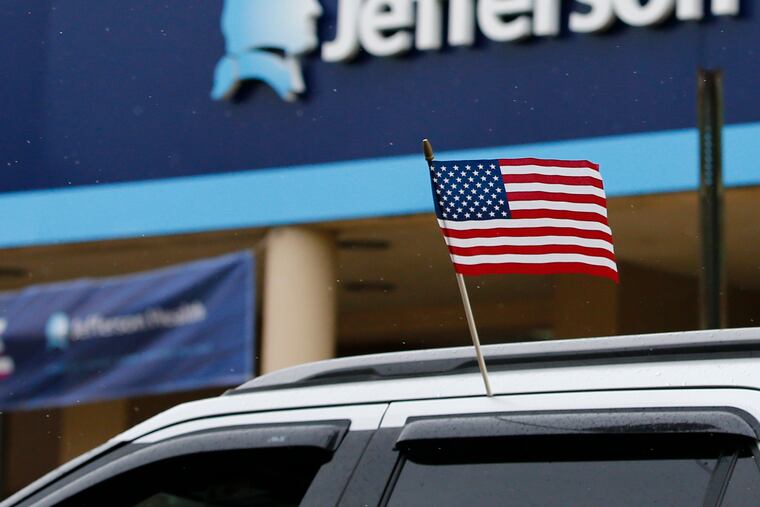Jefferson and Einstein merger clears latest legal challenge by the FTC
Jefferson's acquisition of Einstein could still face additional legal challenges.

The Third Circuit Court of Appeals on Monday denied the Federal Trade Commission’s latest bid to block Thomas Jefferson University’s acquisition of Einstein Healthcare Network.
The decision by a panel of three judges leaves in place a lower-court finding that the FTC’s case failed to mesh with the reality of the Philadelphia area health-care market and relied on testimony from health insurers that was “not credible.”
Jefferson and Einstein said they were heartened by the Third Circuit’s denial of the FTC’s motion for an emergency injunction against the merger. The FTC asked for the injunction so it could appeal its loss two weeks ago in U.S. District Court for Eastern Pennsylvania.
“We hope to move forward with the merger of our academic medical centers and finalize it in 2021,” Jefferson and Einstein said in a joint statement.
The FTC had no comment.
Jefferson’s acquisition of Einstein, which says it can’t survive independently for long without slashing services to North Philadelphia, has been pending since September 2018. For Jefferson, the deal would cap a run of acquisitions that started with Abington Health in 2015 and would result in a network of 18 hospitals with $6.5 billion in revenue, including Einstein. The deal would also give Jefferson a chance to radically change the region’s health-care marketplace by integrating with Health Partners Plans, an insurance company it already partly owns.
It’s not clear what will happen next.
The federal regulators could ask for a review by a larger panel of judges than the three who issued Monday’s one-page order. It would be extremely unusual for the court to grant such an “en banc” rehearing of an emergency injunction denial, said Matthew Stiegler, a Philadelphia lawyer who specializes in federal appeals and writes a blog on the Third Circuit but was not involved in this case.
Appeals Judge Thomas L. Ambro signed Monday’s order. The other judges on the panel were Cheryl Ann Krause and D. Michael Fisher. Fisher and Krause participated in a significant 2016 antitrust ruling against the merger of Penn State Hershey Medical Center and PinnacleHealth System. Fisher wrote that opinion, which was in favor of the FTC.
“The fact that the panel that rejected an injunction here includes two of the same judges who ruled for an injunction in the Penn State Hershey Medical Center case makes it even more difficult to imagine an en banc rehearing being granted here,” Stiegler said.
“The government presented extensive evidence showing that insurers would have no choice but to accept a price increase from a combined Hershey/Pinnacle in lieu of excluding the hospitals from their networks,” Fisher wrote in his 2016 Third Circuit opinion.
In his Dec. 7 opinion, U.S. District Court Judge Gerald J. Pappert relied heavily on the Penn State ruling, but kept in mind that “the Southeastern Pennsylvania and central Pennsylvania health-care markets are vastly different,” with significantly more competitors here than in the Harrisburg area.
In the Jefferson-Einstein case, the FTC failed to provide “extensive evidence” that insurers would have no choice but to accept price increases from the combined Jefferson-Einstein hospital network, Pappert said in his opinion this month.
Pappert found little merit to the testimony of Independence Blue Cross, the region’s largest health insurer, with more than half the market.
“The evidence does not support the assertion that IBC would roll over and pay higher prices,” he wrote, “instead of turning to its network of hospitals outside the government’s proposed geographic markets.”